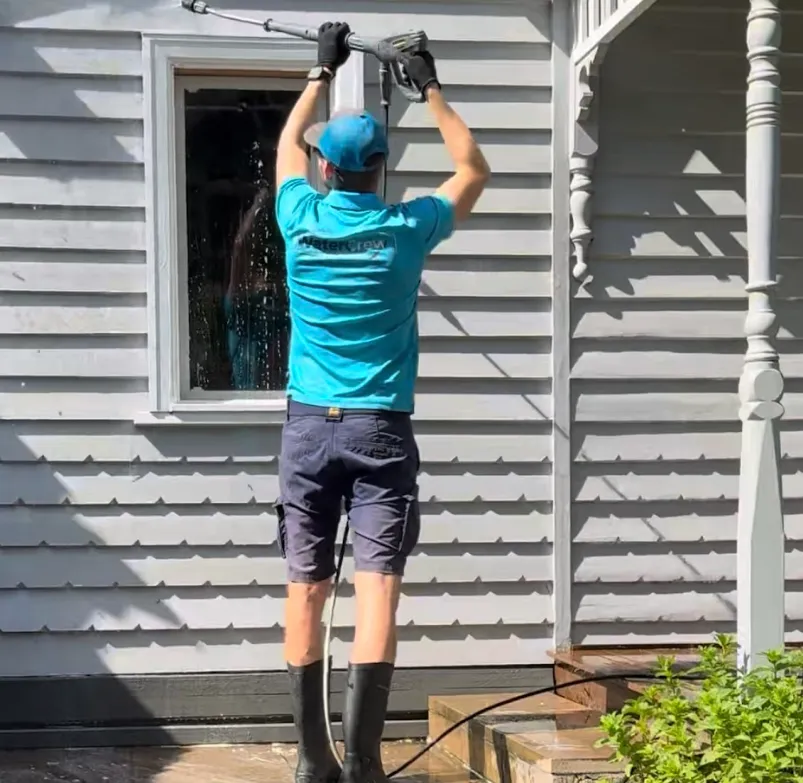Cleaning the exterior of your home is important for looks and maintenance. Whether it’s vinyl siding, wood panel siding or stone pathways, the choice between soft washing and pressure washing can make or break these surfaces. Both methods are clean, but they differ in approach, surface and risk of damage. Knowing the differences between the two can help homeowners make an informed decision when it comes to their property. This article will go into the differences between soft washing and pressure washing with a focus on common materials like vinyl siding, Cedar Shake and roof shingles.
What is Pressure Washing?
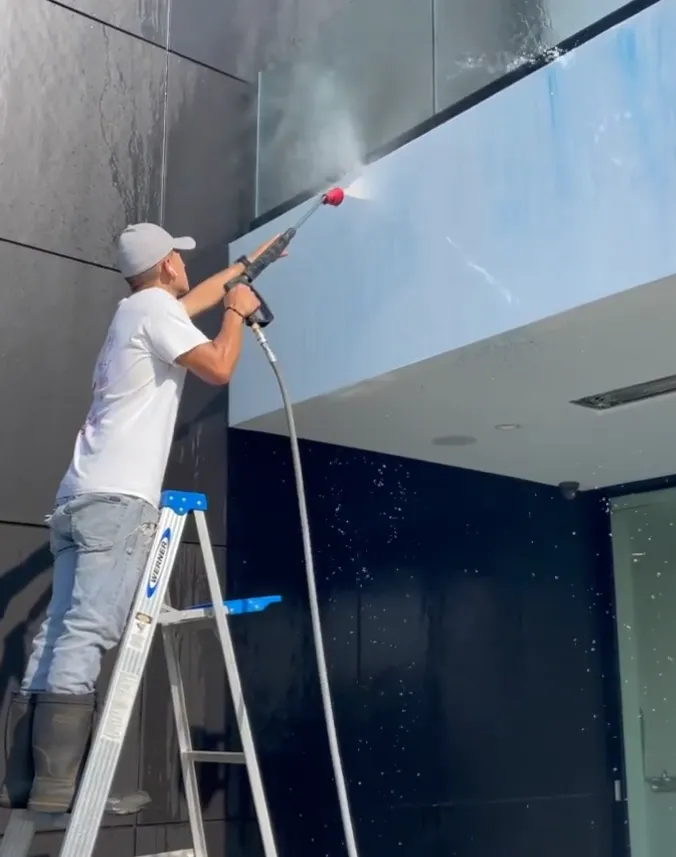
Pressure washing is a method that uses high-pressure water to clean exterior surfaces, especially those that are hard or porous. With a pressure ranging from 1,500 to over 4,000 PSI (pounds per square inch), pressure washers are used on surfaces like:
- Concrete driveways
- Brick walls
- Stone surfaces
- Garage floors
- Wood decks
The high pressure blasts away stubborn stains, dirt, algae, mold and grime. It’s a great method for cleaning hard surfaces but using too much pressure can damage surfaces like wood panel siding, vinyl materials and aluminum sidings.
Advantages of Pressure Washing
- Powerful cleaning: The high-pressure water spray can clean dirt and grime fast, especially on hard surfaces.
- Wide range of uses: Pressure washing is great for large areas like concrete decks, driveways and other outdoor surfaces.
- Deep cleaning: It can remove tough stains that other methods can’t.
Disadvantages of Pressure Washing
- Risk of damage: The high pressure can erode and damage softer surfaces like wood decks, vinyl siding and even roof shingles.
- Water consumption: Pressure washing uses a lot of water, making it less eco-friendly compared to other options.
- Requires skill: Without proper training using a power washer can be dangerous and can damage your property. Professionals know the right pressure to avoid these issues.
Best Surfaces for Pressure Washing
- Concrete surfaces like driveways, patios and sidewalks
- Brick walls and stone pathways
- Wood panel siding (if done carefully with the right settings)
- Garage floors
- Asphalt driveways
Pressure washing is great for removing deep-seated dirt and grime from hard surfaces that can withstand high-pressure water without the risk of damage.
What is Soft Washing?
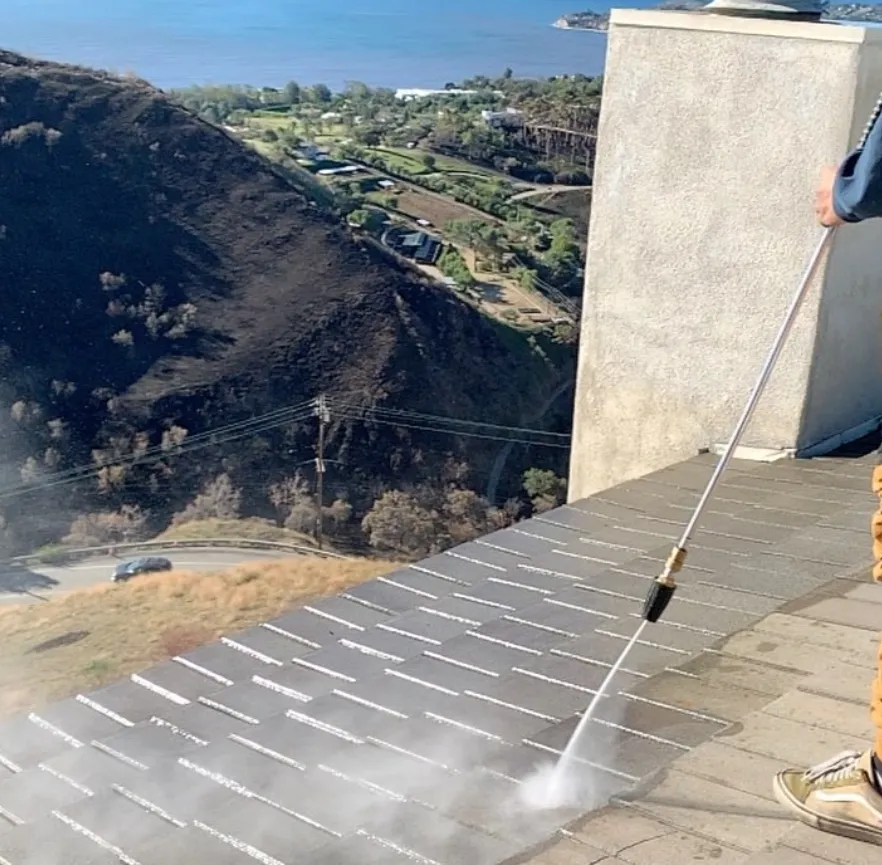
Soft washing is a gentler method that uses low-pressure water and specialized cleaning chemicals to clean delicate surfaces. The pressure used in soft washing is under 500 PSI, which is gentle enough to clean fragile surfaces like:
- Vinyl siding
- Cedar Shake siding
- Roof shingles (especially asphalt shingles)
- Wooden decks
The secret to soft washing is not the pressure but the chemical mixture used to break down dirt, algae, mold and other organic materials. These cleaning chemicals are usually biodegradable so soft washing is more eco friendly.
Soft Washing Benefits
- Safer for soft surfaces: Soft washing uses low pressure water so it’s safer for wood siding, vinyl and roof shingles.
- Longer lasting results: Using a chemical solution that kills at the root of algae and mold, soft washing gives longer lasting results than pressure washing.
- Eco-friendly: Most softwashing companies use biodegradable detergents.
- Less risk of damage: Soft washing reduces the risk of damage to fragile surfaces like wood shingles, Cedar shakes and aluminium siding.
Soft Washing Drawbacks
- Not as effective on hard surfaces: While soft washing is great for soft surfaces, it’s not as effective on concrete driveways or other hard surfaces that need more force to clean.
- Depends on chemicals: Soft washing relies on chemical agents to clean. Some homeowners may not like the idea of chemicals on their property, even if they are biodegradable.
Best for Soft Washing
- Vinyl siding
- Wooden decks
- Cedar Shake siding
- Roof shingles
- Aluminum siding
For homes with soft elements like vinyl siding, wood panel siding and Cedar Shake, soft washing is the way to go. It cleans these materials without damaging them with high pressure water.
Soft Washing vs Pressure Washing
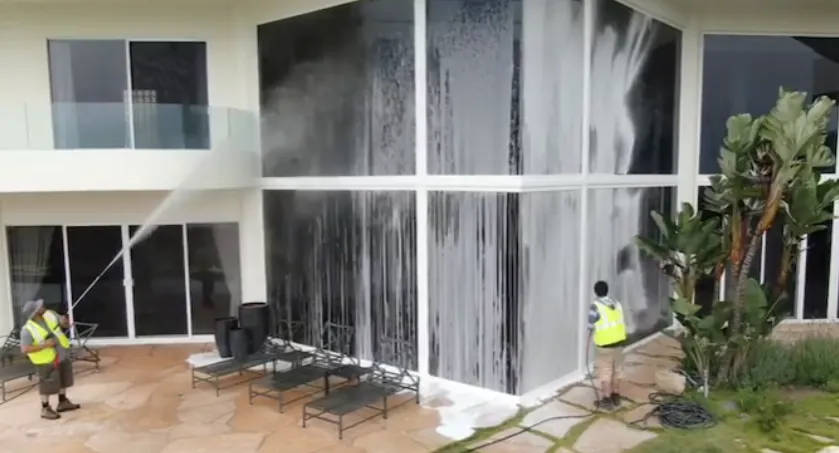
- Water Pressure:
- Pressure washing uses high-pressure water (1,500-4,000 PSI) for hard surfaces.
- Soft washing uses low pressure water (below 500 PSI) and a cleaning solution that kills biological elements like algae, mold and mildew.
- Type of Surface:
- Pressure washing is best for hard surfaces like concrete driveways, stone walls and brick walls.
- Soft washing is best for soft surfaces like wood shingles, vinyl siding and Cedar Shake.
- Risk of Damage:
- Pressure washing carries more risk of damage to soft materials like vinyl siding, wooden decks and roof shingles if the water pressure is too high.
- Soft washing, being gentler, minimizes the risk of damage to soft surfaces while cleaning them.
- Cleaning Agents:
- Soft washing uses biodegradable detergents and chemical agents to clean surfaces. Pressure washing often relies on the force of pressurized water.
- So soft washing is a more eco-friendly option than regular cleaning.
- Effectiveness:
- Pressure washing is good for cleaning stubborn stains and grime on hard surfaces but requires more frequent cleanings since it doesn’t kill contaminants at their source.
- Soft washing gives longer-lasting results by killing biological elements like mould and algae at their roots.
Which One is Right for Your Home
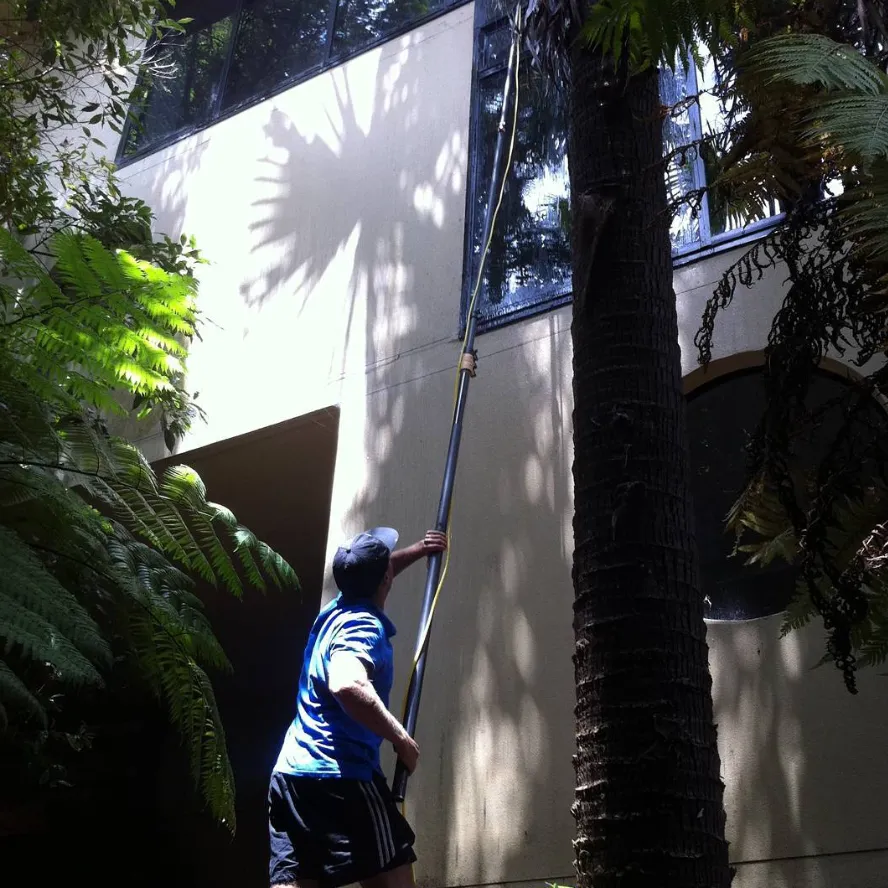
Decide between pressure washing and soft washing based on the surface you’re cleaning and the amount of dirt buildup. For example, a concrete driveway or stone pathway will need the power of high-pressure cleaning, while roof shingles and vinyl siding will need the soft touch of a soft washing solution to avoid damage.
When to Choose Pressure Washing
- For concrete surfaces, brick walls and garage floors where a power washer can blast away dirt.
- For stubborn stains that need high-pressure water to remove, like on stone walls or outdoor surfaces exposed to the elements.
When to Choose Soft Washing
- For fragile surfaces like vinyl siding, wood shingles or Cedar Shake that can be damaged by the high pressure of a traditional power washer.
- Remove organic growth like mould and algae from roof shingles for a longer-lasting result without damage.
- For an eco-friendly option that uses biodegradable detergents and minimal water.
FAQ
Can pressure washing damage vinyl siding?
Yes, pressure washing vinyl siding can damage surfaces if the water pressure is too high. It’s better to use a soft washing method with low pressure.
How often should I soft wash my house?
For most homes soft washing every 1-3 years is enough to keep exterior surfaces like wooden decks, vinyl siding and roof shingles clean and free of organic growth.
What’s the difference between soft washing and pressure washing?
The main difference between pressure washing and soft washing is the water pressure. Pressure washing uses high pressure water for hard surfaces, soft washing uses low pressure water and cleaning chemicals for soft surfaces.
Is soft washing eco friendly?
Yes, soft washing uses biodegradable chemicals, it’s more eco friendly than traditional pressure washing methods.
What’s the cost difference between pressure washing and soft washing?
The cost depends on the type of washing and the size of the area to be cleaned. Soft washing may be a bit more expensive because of the chemical mixtures but it’s more cost effective in the long run.
